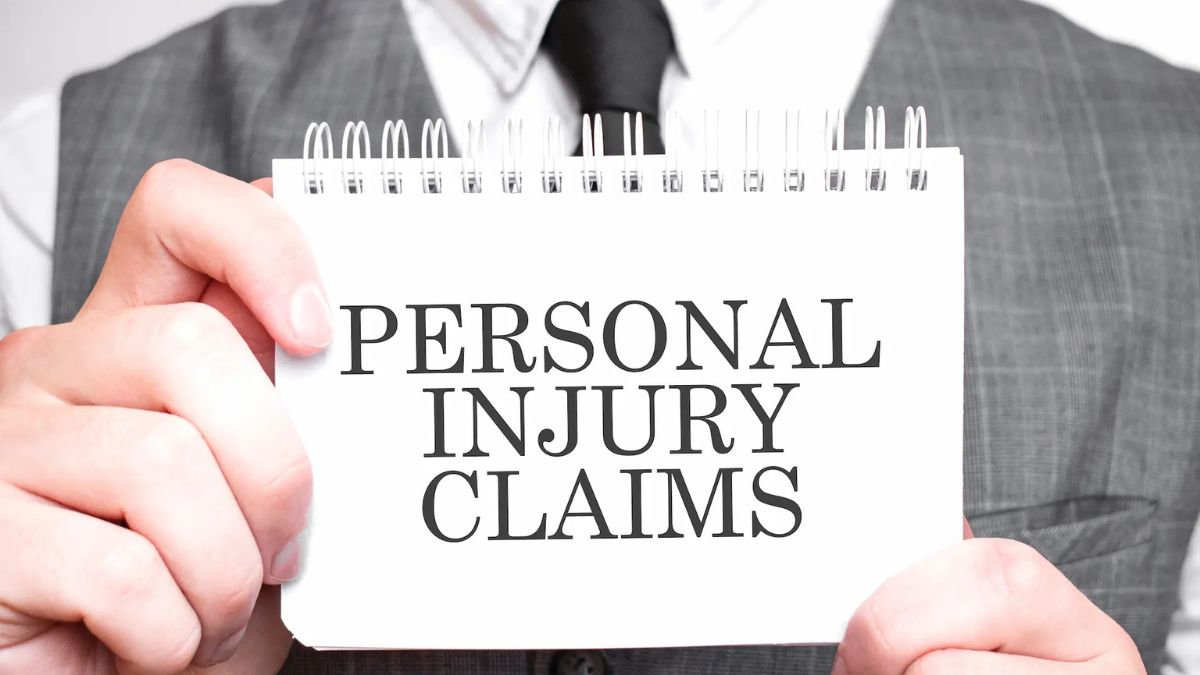LAW
Why Expert Witnesses Matter in Criminal Defense

In criminal defense, the nuanced insights of a Criminal Defense Expert Witness can be the decisive factor between conviction and acquittal. Their expertise covers a broad spectrum of fields, such as forensic science, psychology, and specialist medicine, crucial for unraveling a case’s complexities. The importance of their role must be balanced, as they provide the clarity needed to navigate the labyrinthine legal procedures and ensure justice is served fairly.
The contributions of expert witnesses in criminal defense involve more than just testifying. They break down complex scientific terminologies and technologies, presenting them in an understandable manner to the court. This complicated data transformation into digestible insights highlights the fundamental importance of expert witnesses in the defense landscape.
The Essential Role of Expert Witnesses
Expert witnesses serve as educators for the court, offering analyses and opinions based on years of experience and study. They are essential in translating scientific or technical data into understandable language that aids legal decision-making processes. Their objective input can help highlight reasonable doubt or project alternative perspectives on what might be perceived as straightforward evidence.
How They Support the Defense
Expert witnesses can bolster criminal defense strategies by providing credible counterpoints to prosecutorial claims. Whether dissecting forensic evidence, offering psychological evaluations, or explaining complex medical findings, their involvement helps construct a robust defense. This, in turn, balances the scales of justice, ensuring that all facets of a case are scrutinized thoroughly.
Criteria for Selecting Reliable Experts
Choosing the right expert witness involves thorough vetting based on qualifications, field experience, and communication ability. A reliable expert should possess the necessary technical knowledge and the aptitude to deliver their insights with clarity and impartiality. Their previous testimonies and reputational standing can significantly impact their credibility and, subsequently, the case outcome.
Future Trends in Expert Testimonies
As the legal field embraces technological innovations, expert witness testimonies are also evolving. From using AI-driven analytics to employing more sophisticated simulators, these changes are setting new benchmarks for interpreting complex data within the courtroom. As technology continues to advance, the role of expert witnesses will expand, demanding greater interdisciplinary expertise.
Key Insights
In conclusion, expert witnesses are critical in criminal defense, offering specialized knowledge that can steer verdicts towards justice. Their contributions provide defendants with a fair trial by broadening the scope of evidence examination and potentially unveiling reasonable doubt. The ongoing evolution in their methodologies featured in publications will ensure they remain indispensable in ensuring that the pursuit of justice is thorough, fair, and informed by the best minds in key fields.

LAW
Children And Divorce: Practical Tips For Supporting Kids Through Family Changes

How Divorce Affects Children: A Closer Look
The reality of divorce can have a profound impact on children, often transforming their perception of home and family nearly overnight. Kids may suddenly face new living arrangements, longer commutes, or the regular absence of a parent from daily life. According to the American Psychological Association, most children experience an emotional rollercoaster in the early phases of divorce—confusion, anxiety, sadness, and sometimes anger—before finding a new sense of balance. The range of reactions is vast, and the intensity can depend heavily on age, personality, and the unique circumstances surrounding the family upheaval.
In many cases, children struggle with self-blame, even believing they somehow caused the split. This is why parents and caregivers should take the time to discuss the changes in a positive and supportive way. Stability and predictability remain crucial. Reassuring kids that both parents love them and will remain involved eases much of the anxiety. When adults need guidance to navigate legal and practical aspects, consulting a family law firm Johnson County, TX, can be a savvy step. Legal professionals can help clarify custody arrangements, which in turn allows parents to focus on maintaining a smooth sense of normalcy for their children. While the transition period can be tough, research consistently shows that with proper support and nurturing, most children adapt and learn to thrive, even as their family structure shifts.
Meeting Kids’ Emotional Needs
Children’s emotional well-being during divorce is closely tied to how the adults around them handle big feelings. Providing comfort, understanding, and patience forms the cornerstone of healthy adjustment. Kids need frequent reminders that the divorce is not their fault, and that their parents’ love for them will always be strong and unchanged. It can be helpful for parents to talk openly about emotions, using age-appropriate language so children feel understood rather than overwhelmed.
- Regularly check in with children about their feelings, but don’t pressure them to speak before they’re ready.
- Maintain or create new family rituals, such as movie nights, family dinners, or weekend hikes, to help retain a sense of stability.
- Offer extra hugs, maintain eye contact, and provide quiet time together to create moments for children to share or simply be near you.
Young children may exhibit shifts in behavior, such as regressing to earlier habits or becoming more clingy. At the same time, older kids might pull away or seek answers from friends and online sources. Respect and patience go a long way, as does understanding that their emotions may come in waves. By continuously providing reassurance and emotional openness, parents help children build confidence that life, though different, is still safe and filled with love.
Communication Strategies For Parents
Open, honest, and mindful communication provides children with a roadmap through the uncertainty of divorce. Rather than overwhelming kids with details, offer clear, truthful explanations about what changes to expect and what will remain the same. Avoid sharing adult grievances or negative remarks about the other parent, as this can burden children and erode trust. Keep in mind that children may process conversations differently—a question answered today might be asked again tomorrow in a different way.
Setting aside small but regular opportunities for check-ins can be more effective than a lengthy, formal talk. Simple questions like, “Is there anything you’re worried about?” can open doors for children without putting them on the spot. According to the American Psychological Association, it is essential that parents listen actively, validate feelings, and show patience with repeated questions or uncertain moods. Children who feel heard are less likely to internalize stress, which in turn facilitates a healthier adjustment to life’s challenges.
Co-Parenting For Stability
Effective co-parenting is at the heart of providing children with the resilience and support they need to navigate family transitions. When parents can communicate respectfully, coordinate routines, and uphold consistent expectations, children are spared much of the crossfire that can worsen stress and anxiety. Unity on essential issues such as discipline, bedtime routines, and school priorities ensures that children do not feel torn or confused about what is expected of them.
Modern tools such as shared digital calendars make it easier than ever to keep everyone on the same page, reducing misunderstandings over schedules or special events. Kids whose parents avoid conflict in their presence are not only happier but also less likely to experience long-term behavioral or emotional difficulties. Resources like HelpGuide’s co-parenting tips offer practical guidance on how divorced or separated parents can build healthier, more collaborative relationships that benefit their children. Agreeing on ground rules for transitions, pick-ups, and essential conversations can build a cooperative environment. Remember, even if parents find times of disagreement, keeping disputes private and always prioritizing the child’s needs models excellent problem-solving skills.
Seeking Professional Support
Even with attentive parenting, the emotional landscape of divorce can be too complex for families to navigate alone. Reaching out to mental health professionals—a counselor, therapist, or school psychologist trained in family issues—can provide children and adults with the tools to process difficult emotions healthily and productively. This support can be individual, for the child or parent, or the family as a whole.
Children may particularly benefit from peer support programs or group counseling, where they can relate to others navigating the same changes. These settings offer reassurance that they are not alone, helping to normalize their experience and boost their self-esteem. For parents, seeking professional help in legal, emotional, or logistical matters can alleviate pressure and allow them to focus more energy on their children’s needs. Ultimately, outside support is never a sign of failure—it’s an investment in family healing and growth.
Helping Kids Navigate School And Social Life
School often becomes a barometer for how well a child is coping with divorce. Changes in academic performance or behavior, increased absences, or falling out with friends can be signs that a child needs more support. Teachers, counselors, and coaches appreciate a heads up—when they know what’s happening at home, they are often eager to help kids adjust academically and emotionally.
Encouraging children to participate in school activities and hobbies helps foster a sense of normalcy and a sense of belonging. Parents can help nurture connections by arranging playdates, allowing time for extended family, or supporting their children’s participation in clubs and sports. When social struggles do arise, maintaining an open door for conversation and encouraging kids to speak with trusted adults at school helps extend their support network beyond the family.
Self-Care For Parents During Family Changes
Amidst the emotional turbulence, parents’ well-being can easily become a lower priority. Yet, practicing self-care has a ripple effect—children who see parents taking steps to manage stress learn that self-respect and self-compassion are essential life skills. Whether it’s reaching out to friends for a listening ear, reserving even fifteen minutes a day for quiet time, or scheduling regular exercise, these actions make a meaningful difference.
- Build and lean on a personal support network of friends, family, or a therapist.
- Allow yourself to feel sad, angry, or uncertain—acknowledging these emotions is an essential part of the healing process.
- Encourage your children to develop healthy coping mechanisms, such as journaling, walking, or practicing mindfulness.
Well-supported adults are better equipped to address children’s anxieties, maintain routines, and stay patient during tense or emotional moments. Taking care of yourself is not selfish—it’s essential for the recovery and stability of your family.
Building Resilience In The Family
Facing a family breakup is never easy, but it can also be an opportunity for growth and resilience. Over time, children and parents often discover new strengths and develop a deeper capacity for empathy and understanding. Life may look different, but with open communication, clear routines, mutual respect, and a willingness to seek help when needed, every family can build a new, fulfilling normal. With patience and ongoing support, children learn that change does not lessen the love and care available to them. These lessons in flexibility and emotional awareness serve families well, not just through divorce, but through many of life’s challenges ahead.
LAW
Tips for Navigating Legal Challenges in Everyday Situations

Dealing with Real Estate Disputes
Real estate is a significant investment that often involves high stakes. Disputes can arise unexpectedly, from boundary disagreements with neighbors to complex landlord-tenant issues. Early identification and resolution of these conflicts can prevent them from escalating into costly legal battles. Engaging with a reputable law firm can be crucial in managing these challenges. They clarify your legal standing and offer pathways to amicable solutions, such as mediation or settlement. Legal experts are equipped to analyze the intricacies of property law, safeguarding your interests. Delve deeper into strategies by visiting resources like real estate dispute resolution tips, emphasizing the importance of maintaining open communication and thorough documentation.
Handling Workplace Legal Issues
The workplace presents an intricate web of rights and responsibilities; legal complications can sometimes arise from unexpected corners. Whether dealing with wrongful termination, alleged workplace harassment, or discrimination claims, understanding your legal rights is fundamental. Start by keeping a detailed log of incidents, which will be critical if a legal claim becomes necessary. Become familiar with the employment laws applicable in your area; for instance, the Equal Employment Opportunity Commission offers extensive information regarding employee rights. Consulting with a legal professional can provide clarity and support, illuminating your options and guiding you toward a resolution that aligns with your circumstances while prioritizing your rights.
Understanding Contractual Obligations
Contracts form the backbone of many personal and professional transactions, from service agreements to business deals. Every clause in a contract is vital, and misunderstanding these terms can lead to severe implications, including financial loss or legal liability. It is crucial to thoroughly review all aspects of any contract before signing. If any part of the contract is unclear, seeking legal advice can dispel ambiguity and ensure you are fully aware of your commitments. Remember, while less formal, verbal agreements can also hold legal weight, so treat these with equal caution. Comprehending these elements minimizes potential legal issues and bolsters your position in exchanges and agreements.
Coping with Personal Injury Cases
In the unfortunate event of a personal injury, the aftermath can be daunting and emotionally taxing. Navigating the legal processes requires a clear strategy to secure fair compensation and support recovery. Begin by documenting every detail about the incident and gathering evidence, such as photos or witness statements. Equally essential is understanding your insurance policy and ensuring you adhere to the required protocol for filing claims. Legal experts can offer insights on claiming compensation, negotiating settlements, and evaluating the merits of your case based on the evidence provided. In instances where negligence is involved, identifying responsible parties and proving liability is pivotal to achieving a satisfactory outcome.
The Importance of Estate Planning
Estate planning is often misconceived as necessary only for the affluent, yet it is crucial for everyone, regardless of asset size. It encompasses making wills, establishing trusts, and assigning powers of attorney—all vital for ensuring your wishes are respected upon passing. Proper estate planning prevents the potential turmoil that can stem from ambiguous intentions and provides clarity for your heirs. Legal advisors specializing in estate planning can tailor plans to fit your circumstances, protecting your assets and facilitating a smooth estate transition. Planning relieves your loved ones of additional stress during an already challenging time.
Navigating Family Law Matters
Family law is uniquely intertwined with emotional and personal aspects of life, covering issues from divorce proceedings to adoption and custody battles. Each situation calls for an understanding of your rights and available legal pathways. Juvenile law and marital property division are examples of the complexities involved in family law. Consulting an attorney with experience in family law can greatly benefit you, offering peace of mind and ensuring that your case is handled adeptly. This expertise is especially pertinent given the variable nature of family laws across different jurisdictions. You protect your interests and family by approaching these highly personal matters with informed legal counsel.
Accessing Legal Aid Resources
Access to legal resources should not be a privilege reserved solely for those who can afford it. Thankfully, various organizations provide valuable support to bridge this gap, offering free or low-cost legal services. Legal aid societies and nonprofit groups are pivotal in delivering guidance and representation to needy individuals. These services can encompass various legal areas, from housing and employment to domestic issues and immigration. Understanding where and how to access these resources can provide critical assistance for those unable to procure legal representation, leveling the legal playing field regardless of financial means.
LAW
Navigating Personal Injury Claims and Legal Considerations

Introduction
Experiencing a personal injury can be life-altering, leaving victims dealing with a myriad of physical, financial, and emotional challenges. Understanding the legal landscape surrounding personal injury claims is vital for ensuring that one’s rights are protected and fair compensation is pursued. This article delves into various aspects of personal injury claims, providing a clearer understanding of the steps involved. For those seeking professional assistance, resources like Harrisonburg personal injury lawyers from Correll Law Firm offer expert guidance and support, ensuring that victims can navigate these challenging waters with confidence.
What Constitutes a Personal Injury Case?
Personal injury cases occur when an accident or injury causes harm to a person and another person may be held legally liable for that harm. The core of these cases often revolves around negligence—where one party’s lack of reasonable care results in injury to another. Common scenarios include automobile accidents, slips and falls, and medical malpractice. Each case requires an understanding of the legal definitions of negligence and liability, which vary by jurisdiction but fundamentally seek to protect individuals from preventable harm caused by another’s actions or inactions.
Common Types of Personal Injuries
There are numerous scenarios where personal injuries can occur. Car accidents remain the leading cause of personal injury claims worldwide, with automotive collisions causing a significant amount of physical harm annually. Other prevalent forms include slip and fall accidents on commercial properties, workplace injuries ranging from minor accidents to severe occupational hazards, and cases of medical malpractice. Understanding these types is essential, as each has unique legal criteria and challenges. According to statistics from the U.S. Bureau of Labor Statistics, workplace injuries alone account for thousands of claims every year, emphasizing the widespread impact personal injuries have across various sectors. In Harrisonburg, these scenarios are all too familiar as well, with residents frequently encountering the complexities of personal injury claims due to its bustling community and active lifestyle. Navigating these cases requires a personalized approach, given the unique characteristics of the area and its local laws.
Steps to Take Immediately After an Injury
After an injury, taking prompt, right action can have a big impact on how any future legal action turns out. First, ensuring your safety and health should be a priority, which often involves seeking prompt medical attention to diagnose and treat even seemingly minor injuries. Not only does this ensure your well-being, but it also establishes an official record of your injuries. Next, it’s crucial to report the incident to the relevant authorities, such as filing a police report in case of a car accident or notifying an employer for workplace incidents, which can serve as vital evidence later. Collecting contact information from any witnesses can also be invaluable, helping add credibility to your account of the event.
Understanding Compensation Types
Economic losses and non-economic damages are the two forms of compensation that are awarded in personal injury lawsuits. Tangible losses such as medical bills, rehabilitation expenditures, and lost wages from being unable to work are examples of economic damages. These are relatively straightforward to calculate, provided adequate documentation is available. Conversely, less obvious effects like pain and suffering, loss of companionship, or a lower quality of life are covered by non-economic damages. Although more subjective, these damages are equally important, recognizing the broader impacts of injuries on an individual’s life.
Importance of Gathering Evidence
Any successful personal injury claim is built on evidence, which backs up your claims for damages and validates your statements. Essential pieces of evidence can include detailed photographs of the accident scene, medical records documenting your injuries and treatments, and written accounts of the event from witnesses. This evidence is crucial not only in establishing fault but also in communicating the extent of your injuries and the resulting impact on your life. It is essential to meticulously organize and preserve such evidence, as it significantly influences the outcome of legal proceedings.
Challenges Faced in Personal Injury Cases
Navigating personal injury cases can be fraught with challenges, from proving liability to confronting the tactics of insurance companies aiming to minimize payouts. Particularly for those recuperating from traumatic experiences, legal procedures can be scary and complicated. Staying informed and prepared is crucial, and online resources provide valuable insights into relevant laws and legal procedures. Claimants often face difficulties in gathering sufficient evidence, meeting procedural deadlines, and effectively challenging the counterarguments of opposing parties.
When to Seek Legal Help
While embarking on a personal injury claim process, individuals often question the right time to seek legal assistance. It’s advisable to consult with a lawyer early, particularly when injuries are severe or liability is contested. Experienced attorneys can play a pivotal role in navigating the complexities of legal documentation, procedural requirements, and negotiations with insurance companies or opposing legal teams. Employing legal expertise allows you to focus on your recovery while ensuring your rights are vigorously defended, and an optimal settlement is pursued.
Conclusion
Grasping the essential aspects of personal injury claims empowers individuals to approach their cases with confidence and understanding. Though the path might be fraught with obstacles, being well-informed and seeking expert guidance ensures that justice is not only sought but achieved. Victims are encouraged to reach out for professional legal support, which can make a significant difference in navigating the complexities of their journey toward rightful compensation. By prioritizing their recovery and leveraging available legal resources, individuals can aim to return to a state of normalcy with their rights fully protected.
-

 TOPIC1 year ago
TOPIC1 year agoExploring Fappelo: The Rise of a Unique Online Community
-

 TECHNOLOGY1 year ago
TECHNOLOGY1 year agoExploring the Impact of Shannon Swanick TPO on Modern Blogging
-

 CRYPTO1 year ago
CRYPTO1 year agoUnderstanding the Landscape of Crypto30x.com regulation: What You Need to Know
-

 TOPIC1 year ago
TOPIC1 year agoThe Art of Expression: Analyzing Puppygirlxd Most Iconic Creations
-

 CRYPTO1 year ago
CRYPTO1 year agoExploring the Benefits of Using Biitland.com Stablecoins
-

 HEALTH1 year ago
HEALTH1 year agoTop 5 Benefits of Using a Mansrufer for Your Daily Routine
-

 BUSINESS1 year ago
BUSINESS1 year agoHow Legal Insights Can Streamline Business Operations
-

 TOPIC1 year ago
TOPIC1 year agoTop 5 Myths About Hypackel Debunked!